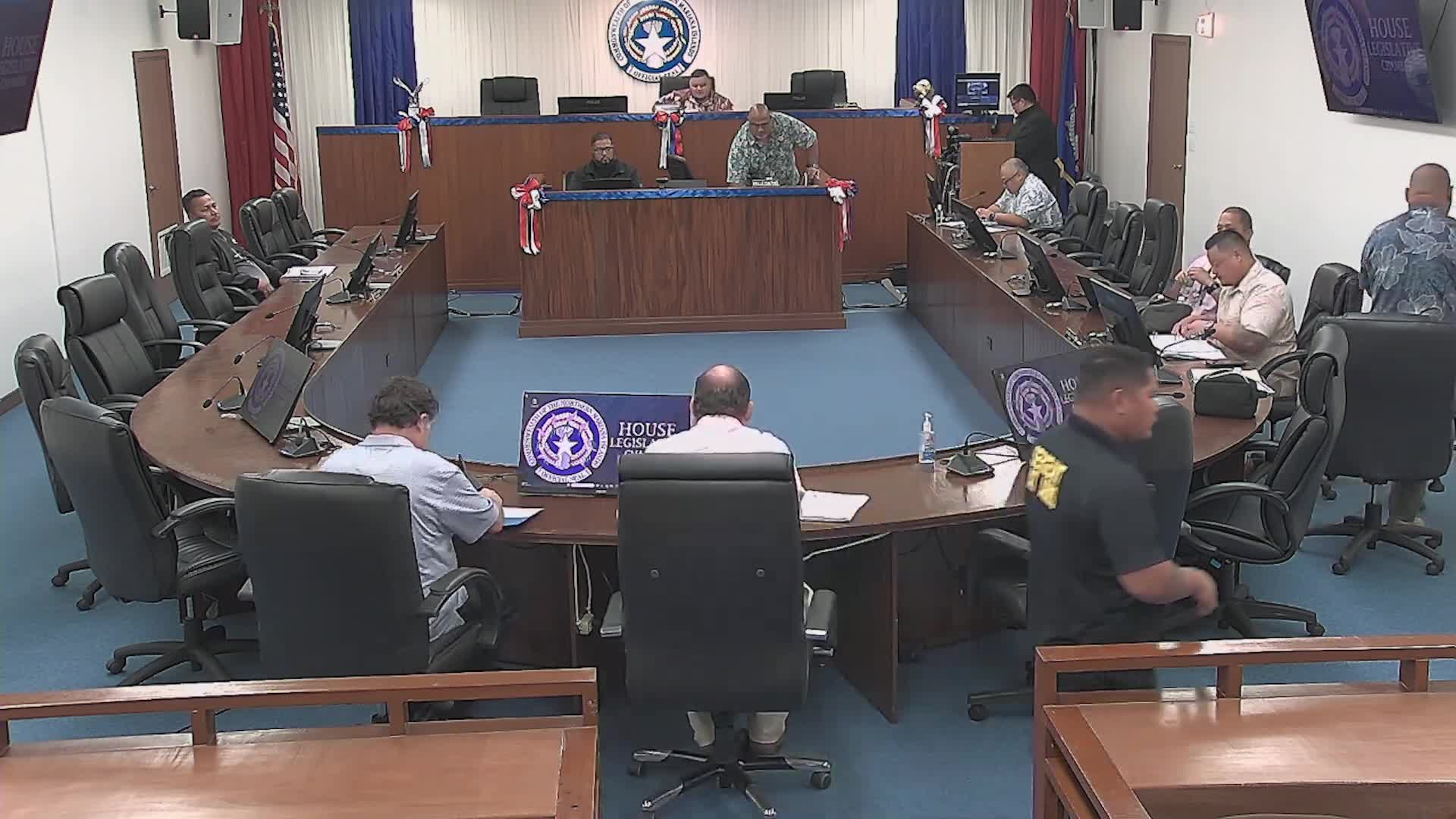Committee tables Fair Billing Practices Act after hours of testimony from Commonwealth Utilities Corporation
Get AI-powered insights, summaries, and transcripts
Subscribe
Summary
A House committee tabled House Bill 24-59, the Fair Billing Practices Act, after extended public comment and testimony from Commonwealth Utilities Corporation (CUC) about meter replacements, nonrevenue water and operational limits; lawmakers expressed frustration with CUC’s customer service and arrears.
The House standing committee on Taxonomy tabled House Bill 24-59, the Fair Billing Practices Act, after extended public comment and testimony from Commonwealth Utilities Corporation officials and several representatives on concerns ranging from meter accuracy to customer service. The motion to table passed by voice vote and the bill was set for further notice.
The bill’s sponsor described the measure as intended to “establish clear and fair standards for back billing practices in the Commonwealth of the Northern Mariana Islands to protect consumers while allowing service providers to recover unpaid amounts lawfully due.” The committee opened the floor to public comment and took testimony from CUC’s executive director and legal counsel before deciding to table the legislation.
CUC legal counsel Michael Ernest told the committee CUC supports consumer-protection laws in principle but asked the legislature either to exempt CUC or provide time to comply if the bill includes the utility. “At the very least, the corporation would ask that the bill not become immediately effective,” Ernest said, noting that compliance will require buying and installing new meters for “thousands and thousands of customers.” Ernest said the director requested six months to comply but suggested the corporation might need more time, and he recommended language modeled on a Guam statute regarding backbilling.
Kevin Watson, executive director for CUC, explained the technical challenge driving CUC’s request for time. He said most of the water meters in the Commonwealth are mechanical with moving parts that under-register as they age because of high total dissolved solids and chloride in local water. Watson told the committee that CUC’s nonrevenue water — water supplied but not billed because of leakages and under-registering meters — was as high as 78% when he started and that targeted meter replacements reduced nonrevenue water in one test service area from 78% to 8% after repairs and replacing more than half the meters in that area.
Watson said CUC has switched to ordering iPERL ultrasonic meters (no internal moving parts) because they remain accurate much longer in the local environment, and that lead times from the factory are about six months. He said CUC had roughly 1,300 new meters in storage and was actively replacing meters but that replacing thousands of meters cannot be done “overnight.” Watson warned that if the bill prevents backbilling and prohibits disconnection for unpaid back charges without careful exceptions, an unscrupulous customer could use that protection to indefinitely delay payment for service and shift costs to other customers.
Lawmakers pressed CUC about customer service, arrears, and inconsistent billing. Representative Vincent Adan sharply criticized CUC: “CUC has failed to do its job in collecting for decades,” and said the utility should not receive extra time when the public does not get the same leniency. Other members described personal and constituent experiences with disputed bills, abrupt disconnections, and slow responses to reports of illegal tapping. Representative Angelo Camacho described a personal example of a household using solar panels and seeing unexpectedly high bills and said he planned to file a dispute.
CUC witnesses reiterated several operational details in response. Ernest and Watson said CUC is highly regulated, subject to the PUTC and federal oversight (including a consent decree monitored by a U.S. district court judge), and has existing dispute processes and payment-plan options. Watson said electric meters are read by automatic meter infrastructure (AMI) but still require inspection, whereas water meters require in-person reads and replacement; he said a greater number of accurate meters will cause some customers’ bills to rise because currently under-registering meters understate consumption.
On specific statutory language, CUC requested amendments that would: (1) allow termination of service for unpaid non-backbilled charges even when a separate backbilling dispute is pending; (2) require a “good faith” filing standard for disputes so the bill cannot be used as a delay tactic; and (3) mirror the Guam backbilling provisions where practicable. Ernest also asked the committee to clarify that disputes regarding one service (for example, water) should not prevent termination of other services provided by CUC (for example, sewer or electric).
After more than an hour of testimony and member statements, the committee chair asked to table the bill to a future meeting. A motion to table was made, seconded and approved by voice vote; the committee directed staff to set the bill for further consideration.
CUC officials said they would continue meter replacements and pursue customer-service improvements, and they invited members to meet outside session to review suggested statutory language. Several representatives said they support changes but want more immediate corrective action and closer oversight of CUC’s billing and collections practices.
The committee’s decision to table HB 24-59 leaves the Fair Billing Practices Act pending while legislators and CUC negotiate technical amendments and timelines.
